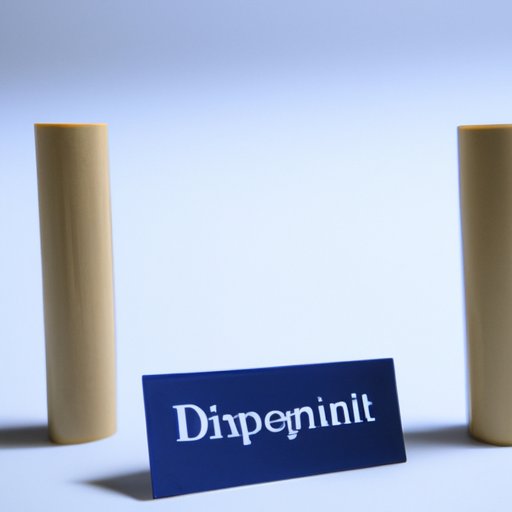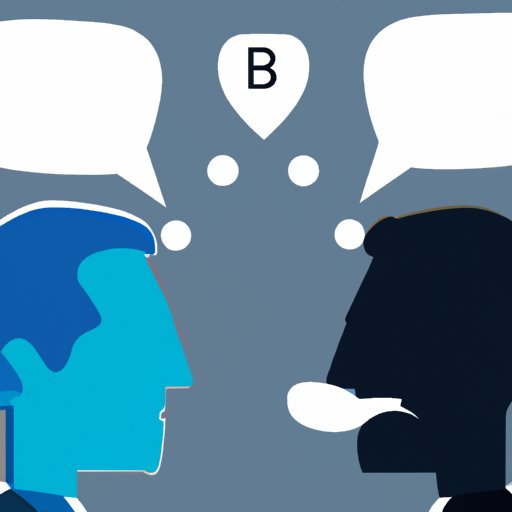Introduction
Diplomacy is a form of communication that emphasizes tact and courtesy in order to achieve a desired outcome. It involves being able to compromise, negotiate, and resolve conflicts without causing damage to relationships. Being diplomatic is an important skill to have, as it can help you navigate difficult situations and maintain positive relationships with others.

Understand the importance of diplomacy and why it matters
The benefits of being diplomatic are numerous. It can help you to avoid arguments and create win-win solutions in difficult situations. Diplomacy can also help to preserve relationships, as it shows respect for the other person’s point of view and allows for constructive dialogue. For example, if you are in a disagreement with someone, being diplomatic can help to resolve the issue without damaging the relationship.
Being diplomatic can also help to build trust between people. When you take the time to listen to someone else’s perspective, it shows that you value their opinion and are willing to work together to find a solution. This can lead to increased collaboration and mutual understanding, which can be beneficial in both personal and professional settings.
Learn to listen actively and be open minded to opposing views
One key aspect of being diplomatic is learning to listen actively. Active listening involves being present in the moment and paying full attention to the other person’s words and body language. When you practice active listening, you are more likely to understand the other person’s perspective and can respond in a way that shows you have taken their feelings into consideration.
It is also important to be open minded to opposing views. If you are able to approach a situation with an open mind, you will be more likely to be able to see the bigger picture and reach a resolution that everyone can agree on. This can help to create a productive dialogue and foster collaboration between all parties involved.
Respect different opinions, cultures, and backgrounds
Another important aspect of being diplomatic is showing respect for different opinions, cultures, and backgrounds. Respectful behavior can help to create an environment where everyone feels comfortable expressing their thoughts and ideas. It can also help to foster mutual understanding and collaboration between all parties involved.
When engaging in dialogue, it is important to remember that everyone has their own experiences and perspectives. By taking the time to really listen and understand where someone is coming from, you show that you value their opinion and are willing to work together to reach a resolution. Additionally, it is important to avoid making assumptions or judgments about someone else’s beliefs or experiences.

Choose your words carefully and speak with tact
In order to be diplomatic, it is important to choose your words carefully and speak with tact. This means avoiding language that could be perceived as offensive or confrontational. Instead, focus on using language that is clear and respectful. It is also important to use language that is specific and concise so that there is no confusion over what you are trying to say.
It is also important to avoid making generalizations or exaggerations. Instead, focus on being honest and direct while still being respectful. This can help to ensure that your message is received in the way that you intended. Additionally, it is important to remember to take responsibility for your words and actions. This can help to create an atmosphere of trust and understanding between all parties involved.

Remain calm and composed in difficult situations
When dealing with difficult situations, it is important to remain calm and composed. This can be difficult, but it is essential for maintaining a diplomatic attitude. Taking a few deep breaths can help you to stay focused and grounded. Additionally, it is important to remember to take a step back and look at the situation objectively. This can help you to stay level headed and make decisions based on facts rather than emotions.
Staying calm and composed can also help you to think more clearly and logically. This can help you to come up with creative solutions to difficult problems. Additionally, it can help to create an atmosphere of trust and understanding, which can be beneficial in both personal and professional settings.
Be mindful of non-verbal communication such as body language and facial expressions
In addition to speaking diplomatically, it is also important to be mindful of your non-verbal communication. This includes things like body language and facial expressions. These small cues can have a big impact on how you are perceived by others. For example, having a relaxed posture and making eye contact can show that you are interested and engaged in the conversation. Additionally, smiling and nodding can show that you are listening and understanding what the other person is saying.
At the same time, it is important to be aware of any negative body language that you may be displaying. For example, crossing your arms or rolling your eyes can send the wrong message and can make it seem like you are not interested or engaged in the conversation. Instead, focus on having an open and inviting posture to show that you are open to hearing what the other person has to say.
Conclusion
Being diplomatic is an important skill to have, as it can help you to navigate difficult situations and maintain positive relationships with others. To be diplomatic, it is important to understand the importance of diplomacy and why it matters. Additionally, you should learn to listen actively and be open minded to opposing views, respect different opinions, cultures, and backgrounds, choose your words carefully and speak with tact, and remain calm and composed in difficult situations. Finally, it is important to be mindful of non-verbal communication such as body language and facial expressions. By following these tips, you can become a more diplomatic communicator and foster positive relationships with those around you.
(Note: Is this article not meeting your expectations? Do you have knowledge or insights to share? Unlock new opportunities and expand your reach by joining our authors team. Click Registration to join us and share your expertise with our readers.)
